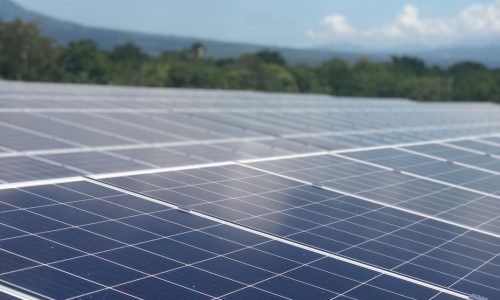The Indonesia Clean Energy Forum (ICEF) has identified a compelling reason behind the surge in major companies venturing into renewable energy projects (EBT). One of the driving forces behind this trend is the allure of potential business opportunities within the carbon market.
Widhyawan Prawiraatmadja, a member of ICEF, noted that numerous large corporations are keen on developing renewable energy sources, such as geothermal power plants. Consequently, they are proactively preparing for the forthcoming regulations governing carbon trading.
“We’ve observed a strong correlation between these geothermal companies and the welcoming reception of carbon trading. This is evidenced by the increased stock prices of Pertamina Geothermal and Barito,” he stated on September 19, 2023.
According to him, if Barito intends to take its subsidiary public on the Indonesia Stock Exchange (BEI) to engage in carbon trading, it would be a logical and prudent move.
“This reaction is driven by an appreciation of renewable energy. They believe that a carbon market can contribute to economic improvement,” emphasized Widhyawan.
Previously, Minister of Energy and Mineral Resources (ESDM) Arifin Tasrif affirmed that his ministry would facilitate investors interested in the Indonesian geothermal industry, deeming it an ideal platform for carbon trading.
“We will certainly provide numerous facilitations because geothermal energy is ideal for carbon swaps or carbon emissions reduction,” Arifin commented.
Furthermore, Arifin explained that these accommodations were not solely due to the minimal carbon emissions associated with geothermal energy but also aligned with the government’s efforts to promote the carbon market in Indonesia.
“In addition to carbon swaps, we will focus on carbon capture as well. These will be the mainstays of our emissions reduction program,” he added.
To foster investment in the geothermal sector, the government has already implemented several regulations, including risk mitigation measures in the event of investor exploration failures.
It’s worth noting that Indonesia boasts the world’s second-largest installed geothermal capacity, with 2,175.7 MWe or 9% already harnessed for Geothermal Power Plants (PLTP), while the untapped potential stands at an impressive 24 GW.
This promising capacity underscores Indonesia’s commitment to becoming a major player in the renewable energy sector and its efforts to invigorate the carbon market.









